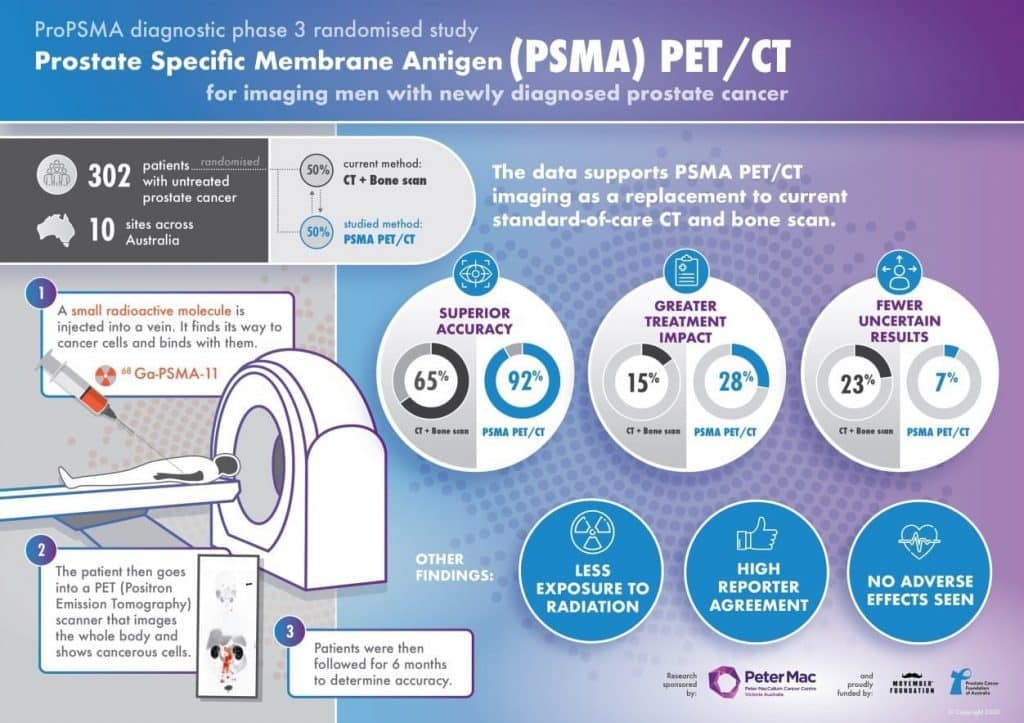The “proPSMA” study results proved the superiority of 68Ga-PSMA imaging over conventional imaging with CT and Bone Scan in Prostate Cancer
Results from a randomised controlled trial – the ProPSMA Study – involving 300 prostate cancer (PC) patients find that 68Ga-PSMA PET-CT is more accurate than current practice of conventional imaging with CT and Bone Scan and recommends that 68Ga-PSMA scans be introduced into routine clinical practice.
PSMA PET/CT imaging technique provides detailed body scan, detecting minute levels of the Prostate Specific Membrane Antigen (PSMA) molecule present on most prostate cancer cells.
This modality enables doctors to better tailor treatments for their patients, by determining accurately the extent of disease spread at the time of diagnosis, as was shown by this randomised controlled trial involving 300 patients in Australia published in The Lancet oncology journal.
PSMA PET/CT proved to be 92% accurate compared with only 65% accuracy which is almost one third more accurate than standard imaging.
Localized PC is commonly treated by surgery to remove the prostate or radiotherapy to target the tumor. In high risk patients, defined as having at least one of either a prostate-specific antigen (PSA) concentration of 20 ng/mL or more, International Society of Uropathology (ISUP) grade group 3–5, or clinical stage T3 or worse, the cancer may have already spread to other parts of the body.
In this group of patients up to 50% have relapse with a subsequently increased risk of metastases following treatment, partly because existing standard-of-care conventional imaging with CT and bone scan has insufficient sensitivity and specificity to detect metastatic disease.
The findings of this research indicate that PSMA-PET/CT scans offer greater accuracy than conventional imaging and can better inform treatment decisions.
28% of men had the treatment plans changed after ga68 psma PET/CT scans compared to 15% following conventional imaging.
The authors of this study recommend that clinical guidelines should be updated to include PSMA PET/CT as part of the diagnostic pathway for men with high risk prostate cancer.





